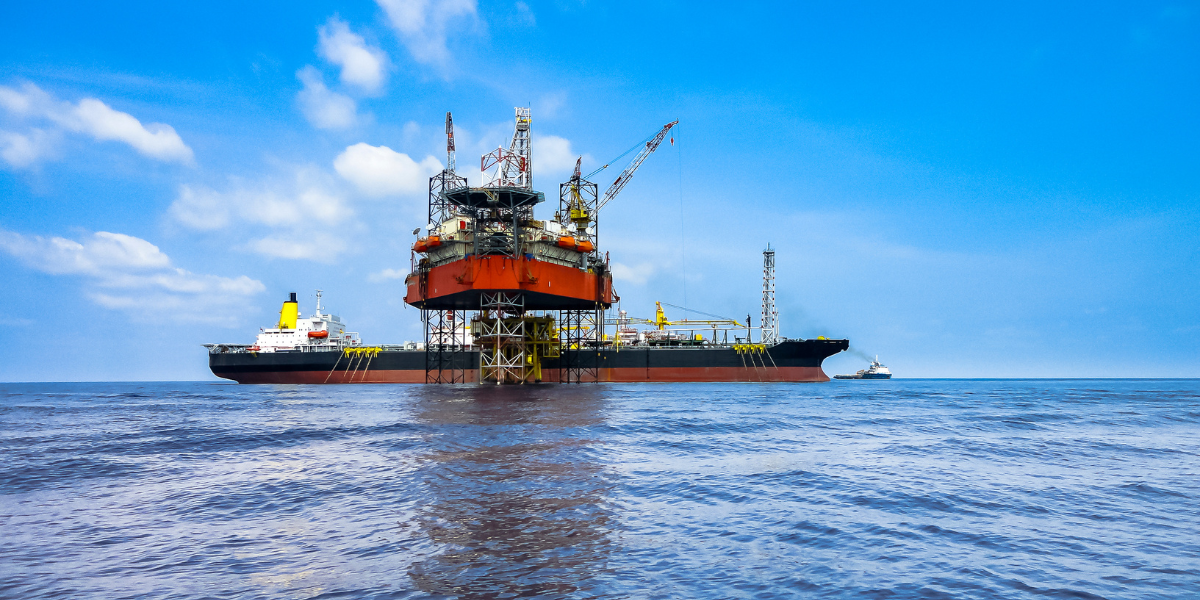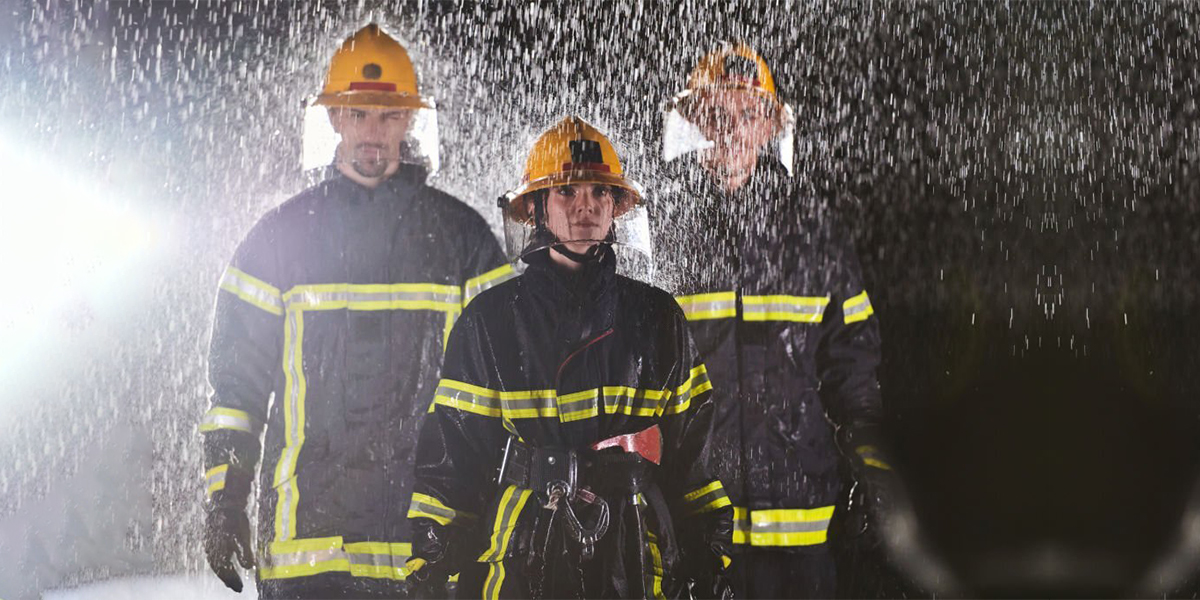Human factors in FPSO safety: The role of crew training & communication

Ahoy!
We all know that, FPSOs, or Floating Production Storage and Offloading vessels, are the titans of the offshore industry, serving as mobile oil production facilities. These engineering marvels harness the power of the sea, extracting precious hydrocarbons from beneath its surface.
But what makes FPSOs a hazard-ridden place of work? FPSOs operate in challenging environments, often exposed to harsh weather conditions and complex operational processes. The implementation of robust safety measures is vital to prevent accidents, protect crew members from harm, and maintain uninterrupted production. With the inherent risks associated with offshore oil and gas production, ensuring the safety of personnel, assets and the environment is paramount.
As they embark on a voyage on FPSOs, exploring the critical role of crew training and communication in ensuring the safety of these floating marvels becomes very important. So, batten down the hatches as we delve into the depths of human factors in FPSO safety.
The significance of Crew Training in FPSO safety
Now, Picture this: a crew member navigating the complex labyrinth of pipes and machinery, ensuring seamless operations and, most importantly, a safe environment for all onboard. As with any high-risk industry, FPSOs demand a highly skilled and well-prepared crew, equipped with the knowledge and expertise to handle the challenges that arise at sea. However, amid the waves of innovation and cutting-edge technology, the importance of human factors often anchors the success or failure of these intricate operations.
Crew training takes center stage in the pursuit of FPSO safety.Why?
It’s no secret that training plays a vital role in developing a competent workforce capable of mitigating risks and responding effectively to emergencies. Just like a well-rehearsed play, a well-trained crew operates in harmony, seamlessly executing their roles while keeping safety at the forefront.
Crew training plays a crucial role in preventing accidents, enabling effective emergency responses and maintaining a safe working environment on FPSO vessels. Through comprehensive training programs, crew members gain the necessary knowledge and skills to:-
- Identify potential hazards,
- follow safety protocols and
- utilize safety equipment correctly.
This helps to minimize the likelihood of accidents occurring in the first place.
Now, how does crew training help with emergencies? In an emergency, a well-trained crew can respond swiftly and efficiently, executing emergency procedures, evacuations and rescue operations with an effective response system. Moreover, crew training fosters a safety-conscious mindset and enhances communication and teamwork, ensuring that everyone on board remains vigilant and actively contributes to maintaining a safe working environment at all times.
The training curriculum for FPSO crews encompasses a wide range of topics, covering everything from firefighting and first aid to emergency response procedures and equipment operation.
Key aspects of crew training for FPSO safety
So why is it important to have these processes comprehensively understood? Understanding FPSO systems, equipment, and processes is of utmost importance for maintaining safety and operational efficiency. FPSOs are complex offshore facilities that house various systems and equipment for oil and gas production, storage, and offloading. By gaining a thorough understanding of these systems, crew members can identify potential risks, troubleshoot issues, and operate the equipment safely.
Familiarity with the processes involved in FPSO operations enables crew members to follow standard procedures, carry out tasks effectively, and make informed decisions. Moreover, understanding the interconnections and dependencies among different systems and equipment helps mitigate the risk of accidents and breakdowns, ensuring the smooth functioning of the FPSO and creating a safer working environment for all onboard.
Hazardous materials, such as chemicals and hydrocarbons, are present on board FPSOs and pose significant risks if mishandled. Proper training equips crew members with knowledge about the characteristics of hazardous materials, safe handling practices, and emergency response protocols in case of leaks or spills.
Fire safety training prepares crew members to identify fire hazards, operate firefighting equipment, and implement fire suppression measures effectively.
Thorough training in evacuation procedures, including muster points, emergency escape routes and the use of life-saving equipment, ensures that crew members are prepared to respond swiftly and safely during emergency situations.
Regular drills and exercises enhance crew members’ preparedness by providing hands-on experience and familiarity with emergency procedures as they simulate realistic scenarios, enabling crew members to practice their roles, test their knowledge, and identify areas for improvement. By reinforcing muscle memory, improving response times, and promoting effective teamwork, regular drills and exercises ensure a higher level of readiness during actual emergencies on FPSO vessels.
The role of effective communication in FPSO safety
Instilling a strong foundation of knowledge and practical skills, training programs cultivate a culture of safety, empowering crew members to handle complex situations with confidence. However, training alone is not enough to navigate the turbulent waters of FPSO safety.
Clear and efficient communication is the lighthouse that guides the crew through treacherous seas. Effective communication channels, both within the crew and between different departments, are vital for maintaining situational awareness and promptly addressing potential risks.
Imagine a scenario where a malfunctioning valve threatens to disrupt the delicate balance of the entire operation. Prompt and accurate communication between crew members can mean the difference between a minor setback and a catastrophic incident. By fostering a culture of open communication and promoting clear protocols, FPSO operators can enhance safety and avert potential disasters.
Effective communication during emergencies is crucial for coordinating response efforts, sharing critical information, and ensuring the safety of all personnel on an FPSO vessel. In routine operations, clear communication fosters smooth coordination, task delegation and accurate reporting, minimizing the risk of errors and enhancing operational efficiency. During shift handovers, effective communication ensures a seamless transition between incoming and outgoing crew members, enabling the transfer of critical information, potential hazards and ongoing operational updates, maintaining continuity and safety onboard the FPSO.
Improving crew training and communication
Modern technology has cast its net over the world of FPSOs, providing new tools for crew training and communication. Virtual reality (VR) simulators offer immersive and realistic training experiences, allowing crew members to practice critical procedures in a safe and controlled environment. Advanced communication systems enable instant collaboration and information sharing, facilitating swift decision-making and response times.
Use of animated video – Induction training helps to comprehensively highlight important aspects of the training. Recreation of incidents, highlighting the chronology of the event, the contributing factors – root causes and discussing CAPAs also helps nurture the empathy & relatability amongst crew members.
Continuous learning and professional development for crew members on FPSOs foster a culture of competence, adaptability, and innovation, keeping them updated with the latest industry standards, regulations, and best practices. Ongoing learning enhances crew members’ skills, knowledge, and problem-solving abilities, enabling them to tackle complex challenges and make informed decisions in dynamic operational environments. It also promotes career growth and personal development, boosting crew members’ confidence, job satisfaction and overall performance, while contributing to a safer and more efficient FPSO operation.
Having Safety committees on FPSOs helps in promoting a proactive safety culture by providing a platform for open communication, sharing safety concerns, and driving continuous improvement initiatives. Regular safety meetings facilitate the exchange of information, lessons learned, and best practices among crew members, enabling them to collectively identify potential hazards, address safety gaps, and implement preventive measures.
Cross-training among crew members enables a diverse skill set, allowing for flexibility and effective response to various operational needs or emergencies. Knowledge sharing promotes a collaborative work environment, enhances problem-solving capabilities and ensures that critical information and expertise are distributed across the team. By cross-training and sharing knowledge, crew members become more versatile, capable of performing multiple roles and better equipped to support each other, leading to improved operational efficiency and safety.
Challenges and future trends
There are two sides of the same coin. Crew training and communication in FPSO operations face several challenges and limitations too!
First, the diverse and multicultural nature of the crew can present language barriers and communication difficulties that may impede effective information exchange.
Second, the remote and isolated nature of FPSO operations can limit access to training facilities and resources, requiring innovative solutions for delivering comprehensive training programs.
Third, crew turnover and rotation pose challenges in ensuring consistent training and maintaining a high level of competency among crew members.
Finally, the dynamic and complex nature of FPSO operations may require ongoing updates to training programs to keep pace with technological advancements and changing safety regulations.
Despite these challenges, FPSO operators must strive to overcome these limitations through tailored training approaches, enhanced communication strategies, and leveraging technological advancements to ensure crew members are well-prepared and equipped to handle the unique challenges of FPSO operations.
Conclusion
As FPSOs continue to push the boundaries of offshore exploration and production, the human element remains an essential factor in maintaining safety standards. These colossal vessels, operating in challenging and often hazardous environments, require well-trained and knowledgeable crew members who understand the intricacies of the systems, equipment, and processes involved.
Crew training plays a crucial role in preventing accidents and incidents by equipping personnel with the necessary skills to identify potential risks, follow safety protocols, and respond effectively in emergency situations.
Furthermore, effective communication is essential for ensuring seamless collaboration among crew members, facilitating the exchange of vital information, and promoting situational awareness.
Crew training and communication form the bedrock upon which safe operations are built, ensuring that these colossal vessels traverse the seas with confidence, competence and most importantly – Safety.



Thanks for this helpful article on explaining the importance of safety factors.